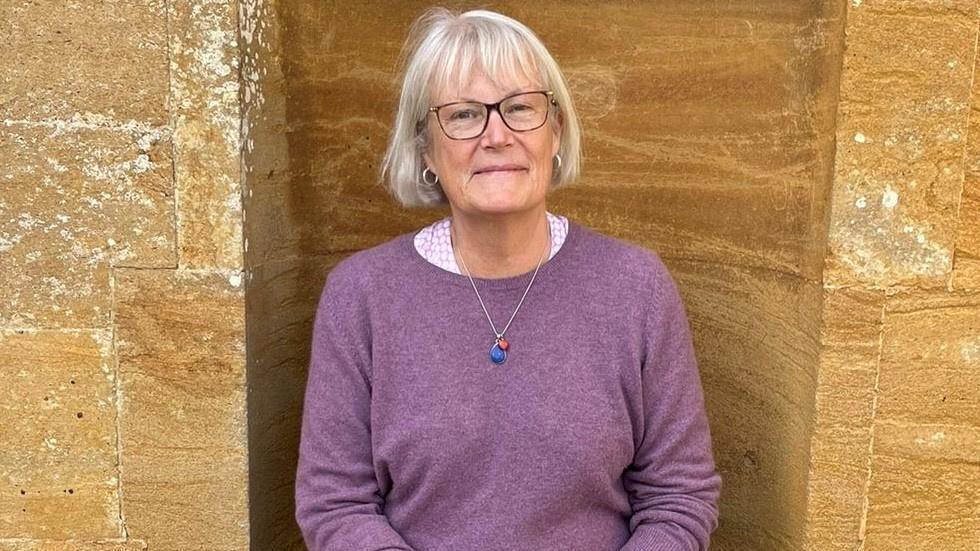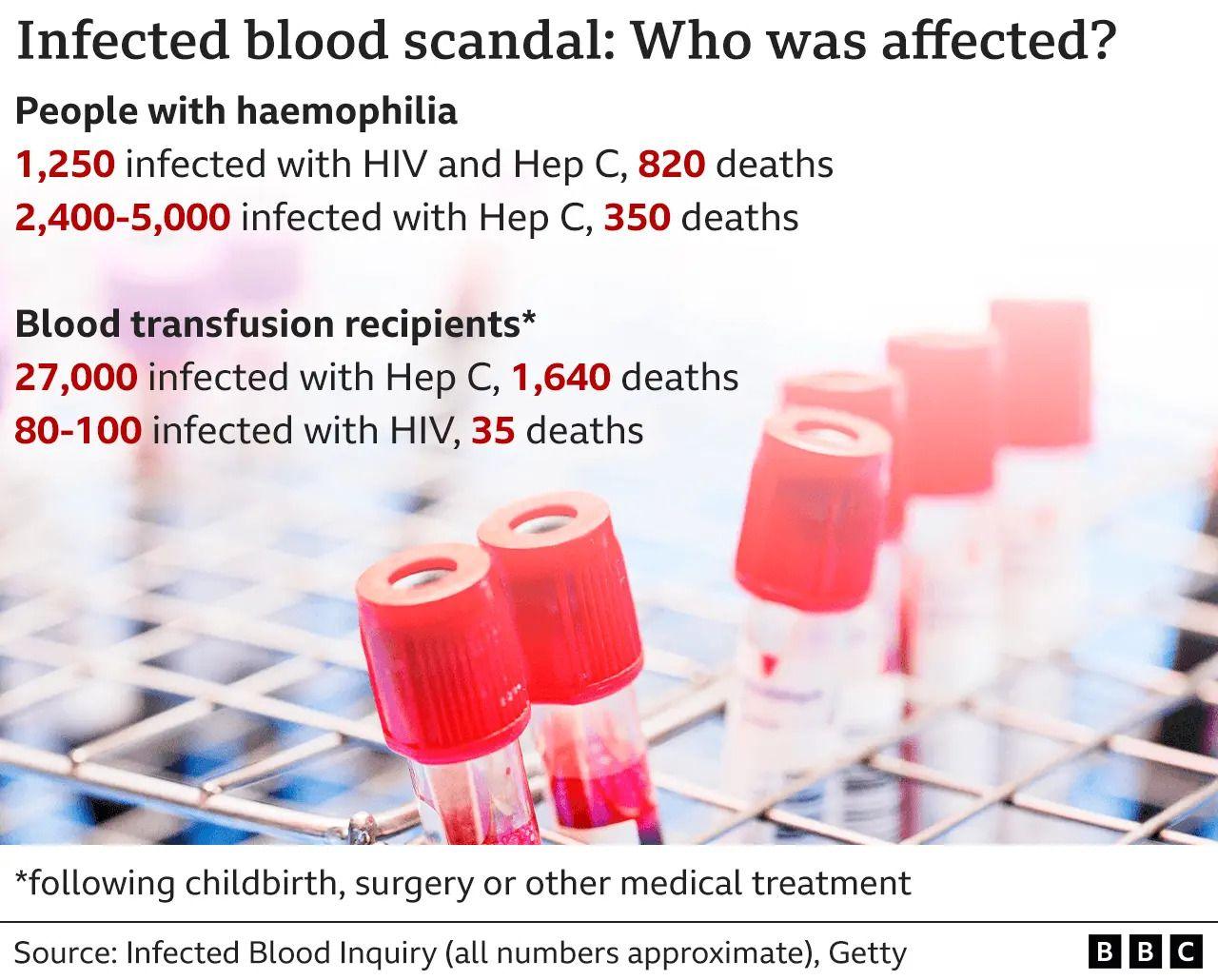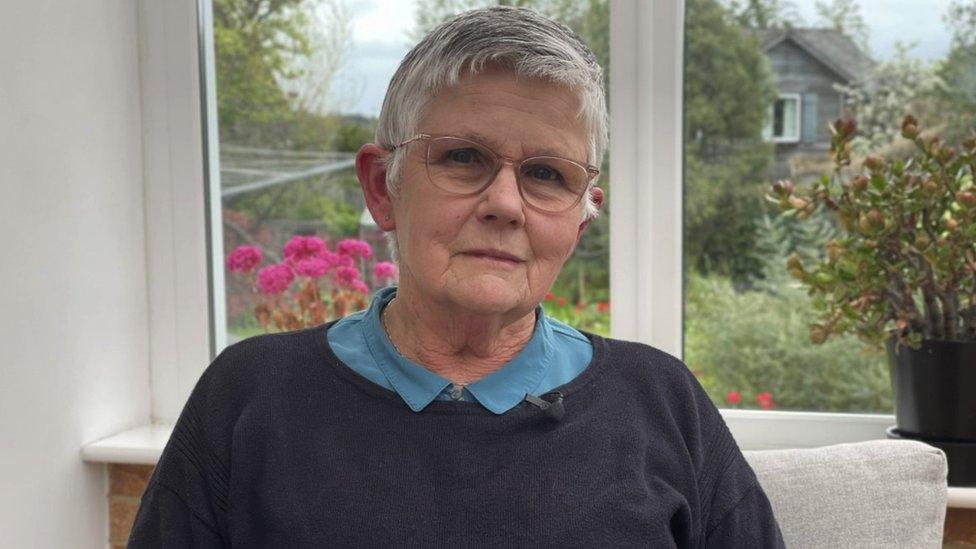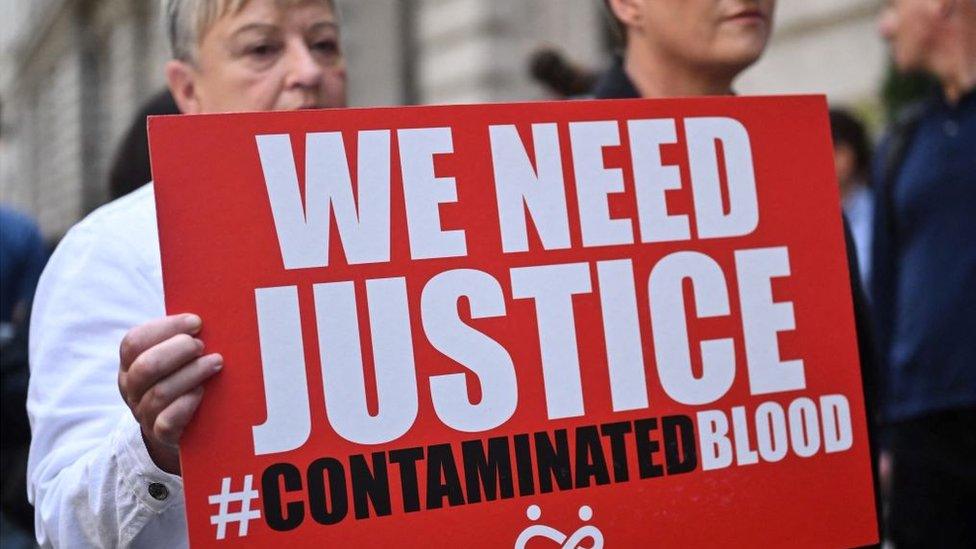'Blood friends' speak of relief at meeting each other

Joan Edgington was infected with hepatitis C after receiving a blood transfusion in January 1991
- Published
Three women who were infected by contaminated blood have said it was a relief to meet each other through the Infected Blood Inquiry and realise they were not alone.
Joan Edgington, from Somerset, Sue Wathen, from Northamptonshire, and Nicola Leahey, from Lancashire, were all infected with hepatitis C.
They met through the inquiry and now are part of a group of eight calling themselves "blood friends".
"It’s just that support, it’s that knowledge that we can just speak to somebody and they know how we feel," said Ms Leahey.
'Overwhelming'
Ms Edgington was infected in January 1991 when during surgery she received a blood transfusion. She was diagnosed a few years later.
"I was aware things weren't quite right, the harder I pushed myself I would start generating flu-like symptoms," she said.
"I used to describe it to my daughters as a car that's running, but you put your foot on the accelerator and there's no energy.
"I did not want to leave my children without their parents and by 2004 my liver was damaged enough to qualify for a trial at Musgrove Hospital but the medication was brutal."
Ms Edgington attended the inquiry alone originally, but found the experience "magical".
"It was overwhelming... just to know you weren’t alone," she said.

Ms Wathen was diagnosed with hepatitis C in 2014 and does not know when she was infected.
Her blood records “disappeared” leaving a singular reference in a note in her medical files which stated she had had “numerous blood transfusions”.
One of her friends said she was "sickly" as she had been "unwell for years" before she was diagnosed.
Ms Leahey had blood transfusions in 1975 and 1980. She found out she had contracted hepatitis C in 2009 after tests.
She said she took early retirement because she constantly felt “extremely tired” in the years before the infection was discovered.
The group described meeting each other, and others infected and affected, at the inquiry as "wonderful".
"You are on your own when you’re diagnosed and then suddenly the whole world opens up to you, that actually you’re not the only one, and there’s hundreds, thousands of others out there,” Ms Leahey said.
"We all say, we wouldn't be here as strong if we weren't all together.
"We call ourselves blood friends."
The public inquiry into what has been called the biggest treatment disaster in NHS history will announce its findings on Monday.
Follow BBC Somerset on Facebook, external and X, external. Send your story ideas to us on email or via WhatsApp on 0800 313 4630.
Related topics
Related internet links
- Published16 May 2024

